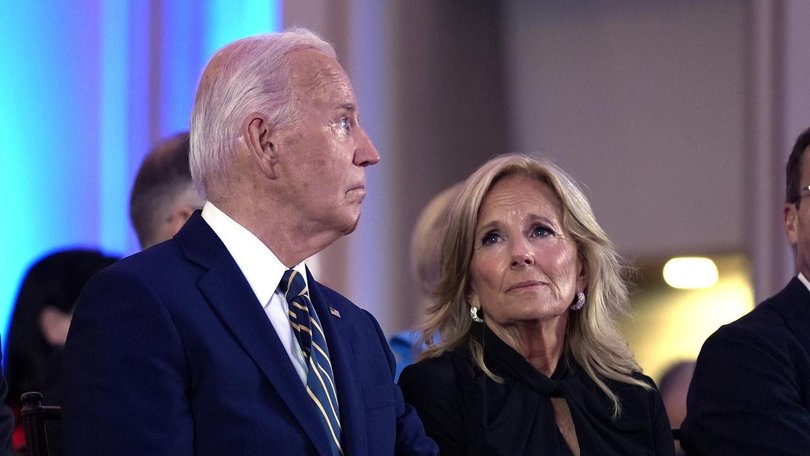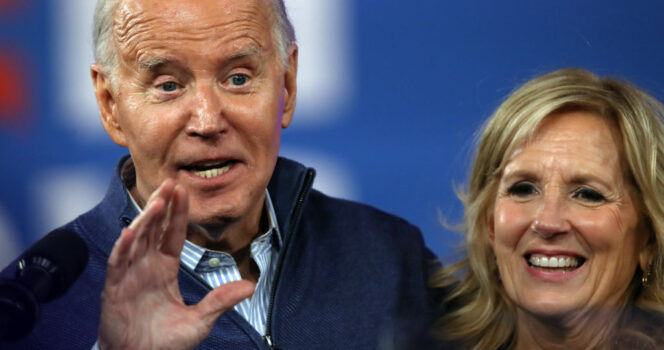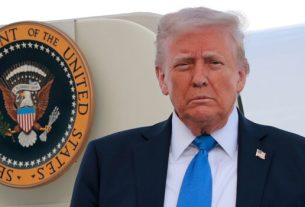If reports of President Biden’s prostate cancer diagnosis in May 2025 are confirmed, they would represent a significant health updates. Among the louder voices, political commentator and former civil rights attorney Leo Terrell gained national attention after publicly suggesting that First Lady Jill Biden may have contributed to ongoing political decisions despite the president’s health condition.
These statements, made on the social media platform X (formerly Twitter), included implications that the First Lady’s support for her husband’s 2024 re-election campaign may have disregarded concerns about his well-being. The comments immediately became a focal point for online debate and criticism.
President Biden’s Diagnosis and Official Health Disclosures
According to medical briefings from the White House Medical Unit, President Biden was diagnosed with prostate cancer during routine screenings. The diagnosis was made early and treatment was initiated under the supervision of medical specialists. Prior to this, publicly released physical examinations from 2021 through 2024 noted good health for his age, though they did not reference any specific prostate screenings.
Medical professionals widely agree that prostate-specific antigen (PSA) screenings are an effective early detection tool. The American Cancer Society recommends men over 50 consult their doctors regarding PSA tests, especially when there is a family history or other risk factors.
The president’s medical team has indicated that he is fit to continue serving in office and has been undergoing appropriate medical care.

Public Criticism of Jill Biden: Analyzing the Claims
Some public figures and commentators online have recently focused attention on Jill Biden, suggesting she may have been aware of the president’s condition and chose not to intervene. The criticism has centered on whether her support for his continued political engagement was appropriate in light of the diagnosis.
Critics have labeled the situation as problematic, while others have gone so far as to raise legal or ethical questions regarding elder care. These claims, however, are not supported by any medical or legal evidence and are not substantiated by official investigations. Jill Biden is not a medical doctor; she holds a Doctor of Education (Ed.D.) degree and has focused her professional efforts on education, cancer awareness, and military family support initiatives.
Many analysts, including healthcare and ethics professionals, have noted that medical decisions for high-profile figures such as the president are made in collaboration with licensed healthcare teams, not by family members alone. In cases involving elected officials, routine medical reviews are performed and disclosed to the public in accordance with long-established norms for transparency.

Medical Responsibility and Legal Context
Under U.S. law, the responsibility for diagnosing, monitoring, and treating medical conditions lies with licensed medical providers. The Health Insurance Portability and Accountability Act (HIPAA) also ensures patient privacy. The decision to disclose health information is a joint process between the individual, their family, and their healthcare team.
Public accusations of elder abuse require clear evidence and legal findings, none of which have been made in this case. No government agency, law enforcement entity, or credible legal source has supported such claims against the First Lady. These accusations appear to be rooted in political commentary rather than verified legal proceedings.

Political Reaction and Social Media Debate
While some public commentators have amplified these criticisms online, a significant number of responses have defended Jill Biden and questioned the logic behind the accusations. Medical experts and ethics advisors have emphasized the importance of distinguishing between political discourse and medically informed decision-making.
Observers have also pointed out the role of misinformation and political bias in shaping public opinion. Claims based on assumption rather than confirmed facts can cause confusion and distract from important issues, such as healthcare access and cancer awareness.
The escalation of political rhetoric during moments of personal or medical vulnerability has raised concerns among media watchdogs. Organizations that monitor media accuracy and social responsibility have urged public figures to consider the broader implications of their statements.
Health Privacy and Political Transparency
The U.S. presidency is subject to high standards of medical disclosure, but these disclosures are ultimately guided by the president and their official medical advisors. Annual physicals are typically released publicly, and any significant changes in health are communicated through official channels.
Jill Biden has not been involved in the medical reporting process, and there is no public record indicating she withheld medical information. Her professional background is in education, and she has never claimed medical expertise.
Health privacy remains a fundamental right for all individuals, including public officials. The balance between transparency and privacy is particularly delicate in the case of sitting presidents, but ultimately, healthcare decisions are made in consultation with licensed physicians and not dictated by family members or political aides.
The Importance of Responsible Dialogue
The emergence of baseless accusations in the wake of a serious medical diagnosis underscores a broader trend in public discourse. As misinformation spreads rapidly online, especially via social platforms, the risk of misleading narratives increases. It is critical to separate opinion from fact and to avoid politicizing sensitive health matters.
Political disagreement is part of a healthy democracy, but it should be grounded in fact-based argumentation. Targeting individuals with accusations that lack evidence undermines the integrity of public debate and can have harmful emotional impacts on those involved.
Support for the First Family and a Call for Empathy
Despite the controversy, public figures from across the political spectrum have expressed support for the president and his family during his recovery. Messages of goodwill have flooded social media, focusing on cancer awareness and solidarity with others facing similar diagnoses.
The First Family has continued to engage with the public and support health-related initiatives. Jill Biden has maintained her focus on education advocacy, military family support, and public health education through the Cancer Moonshot initiative.

Conclusion
In the wake of President Biden’s cancer diagnosis, online discussion has included a mix of concern, support, and political commentary. While some individuals have used the moment to criticize Jill Biden, there is no evidence to support the serious claims being made. Medical decisions regarding the president are managed by a team of licensed professionals, not by the First Lady or political staff.
As public figures continue to navigate the scrutiny that accompanies leadership, it is more important than ever to engage in accurate, respectful, and evidence-based conversations.
Trusted Sources
- American Cancer Society
- White House Medical Unit
- U.S. Department of Health and Human Services – HIPAA
- George Washington University School of Medicine
- Media Matters for America




